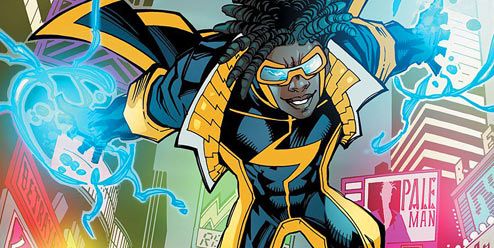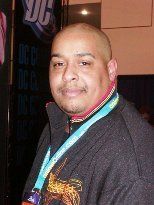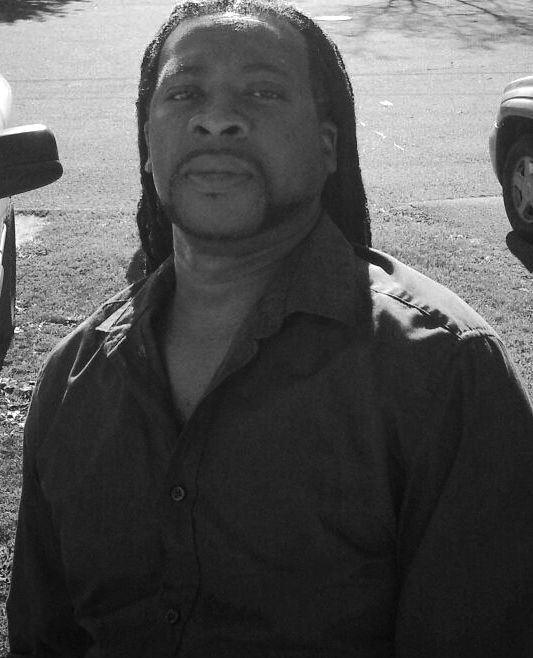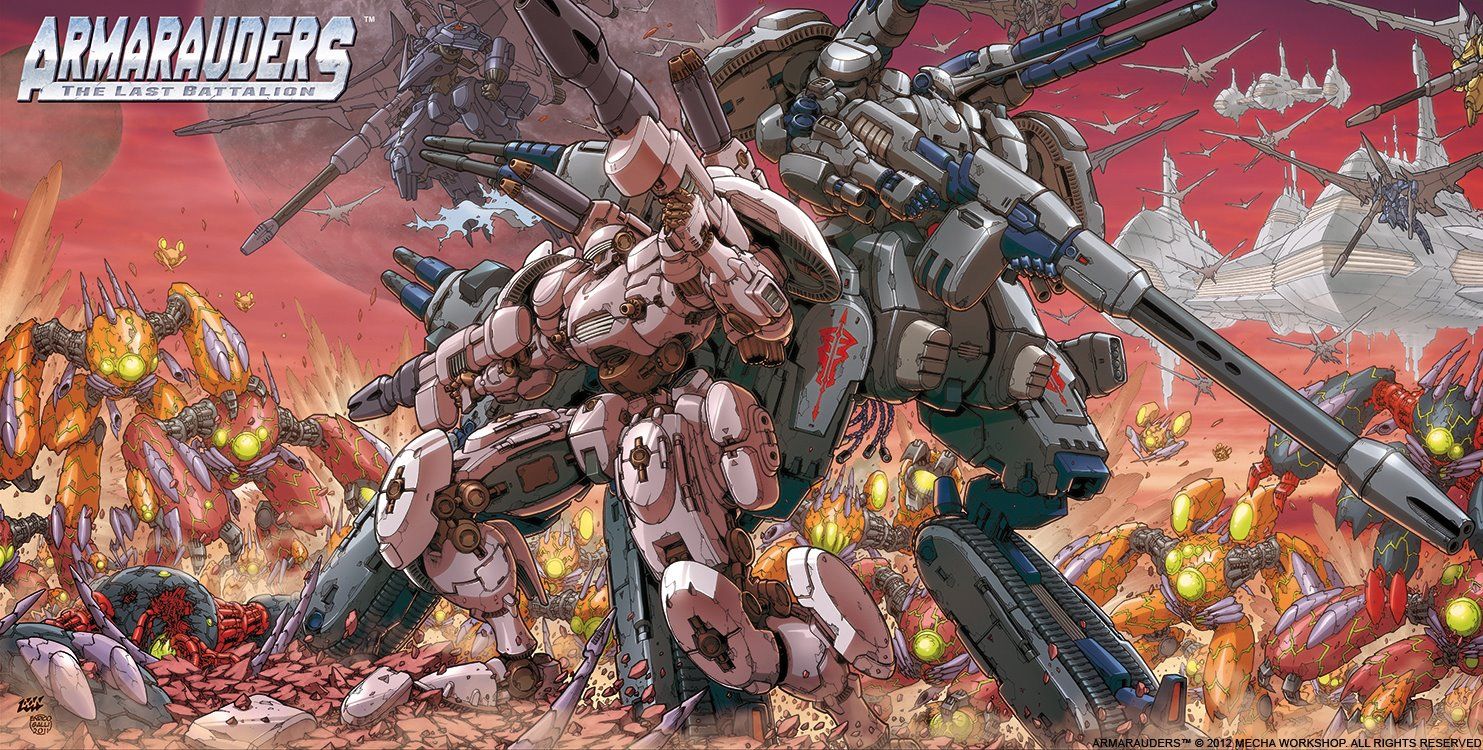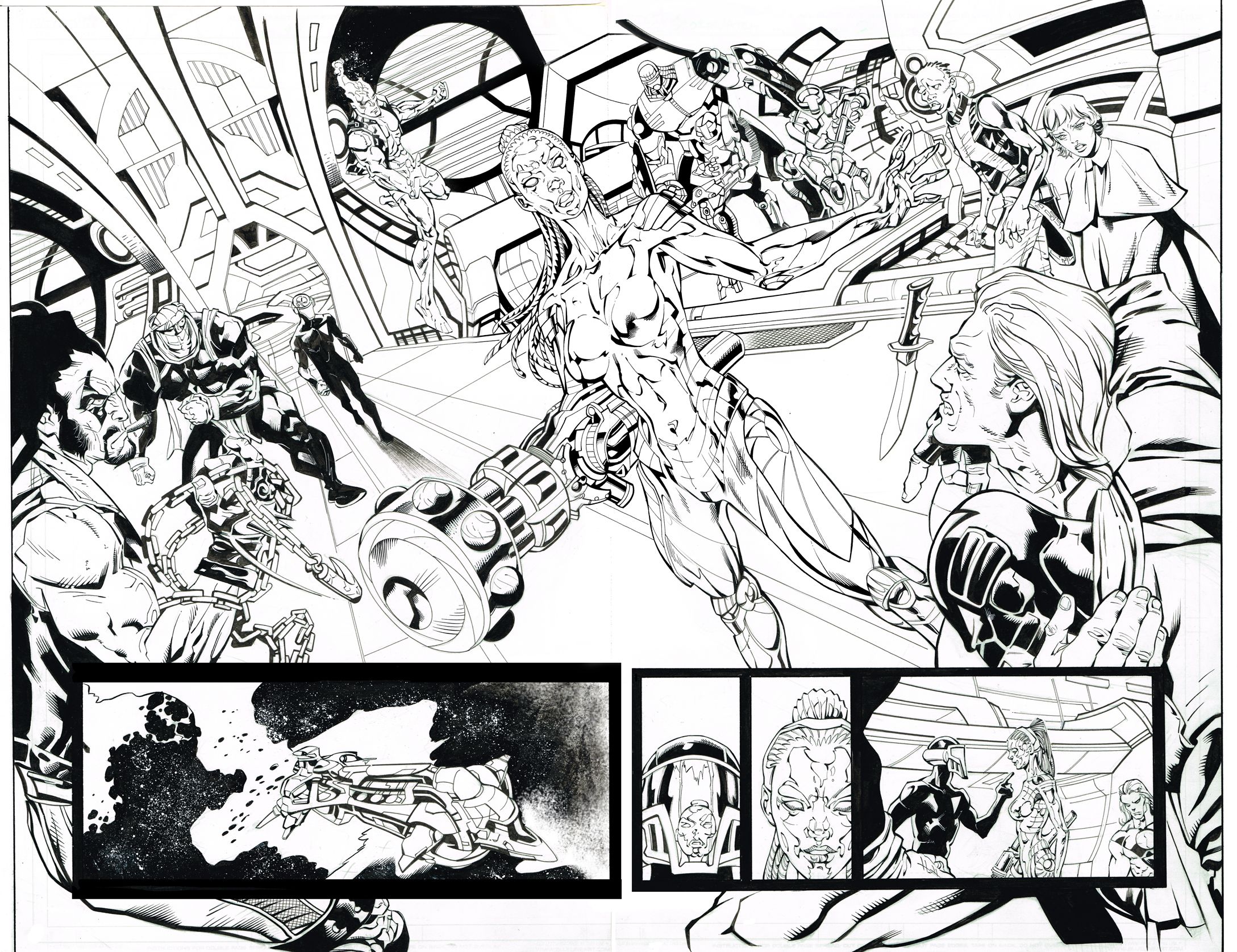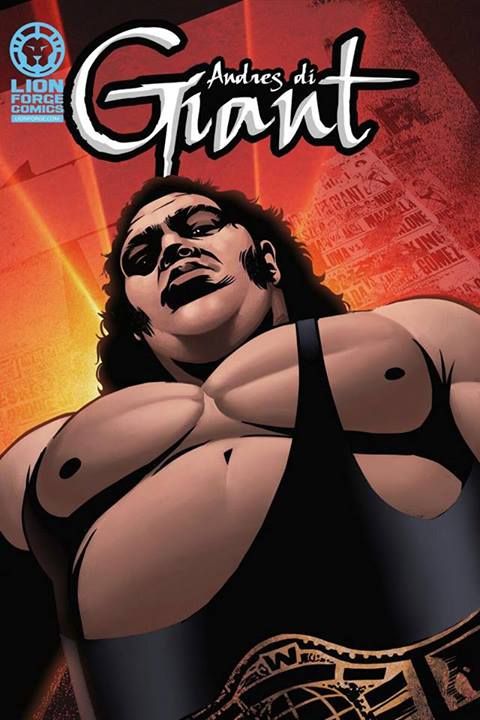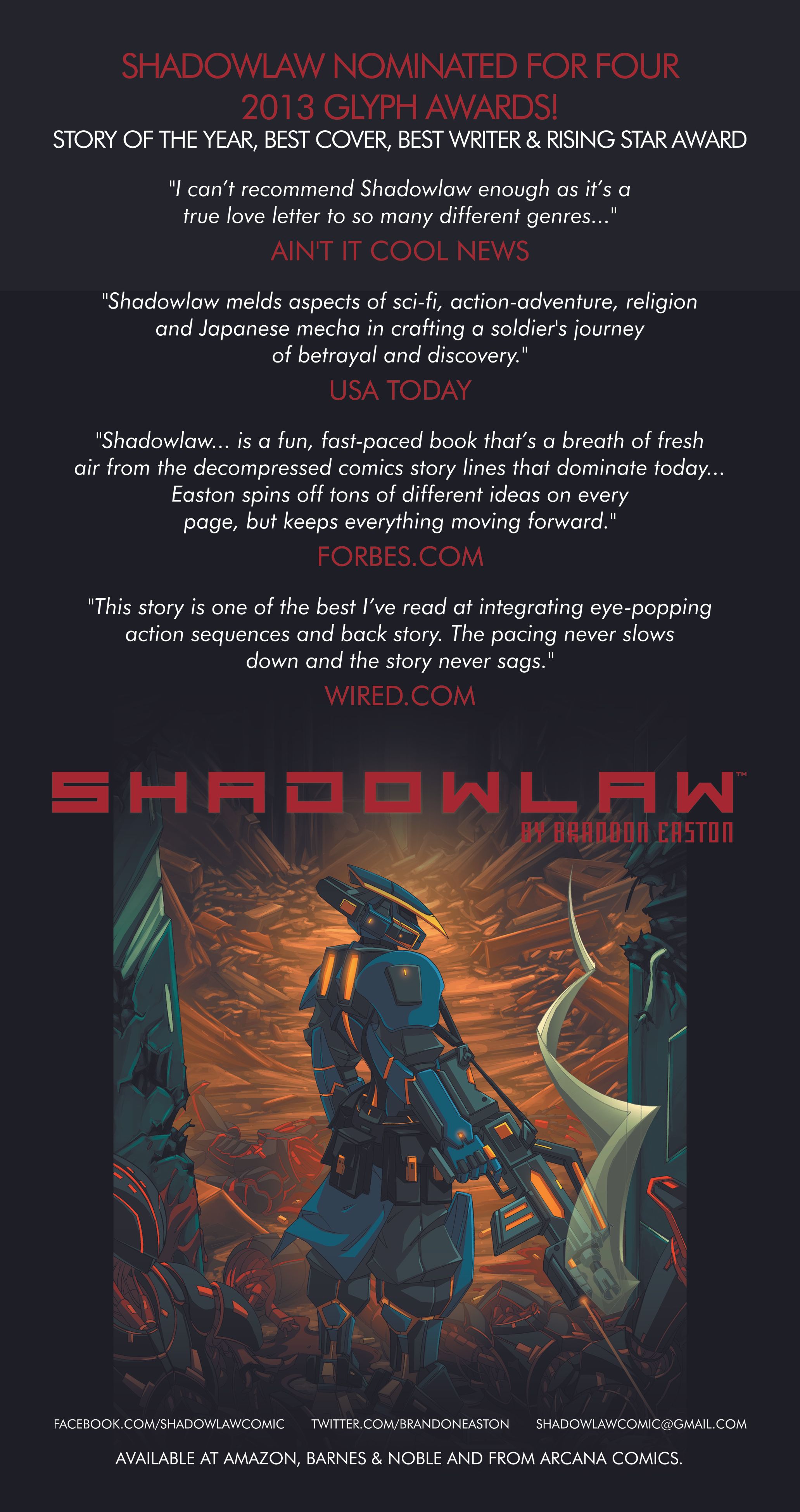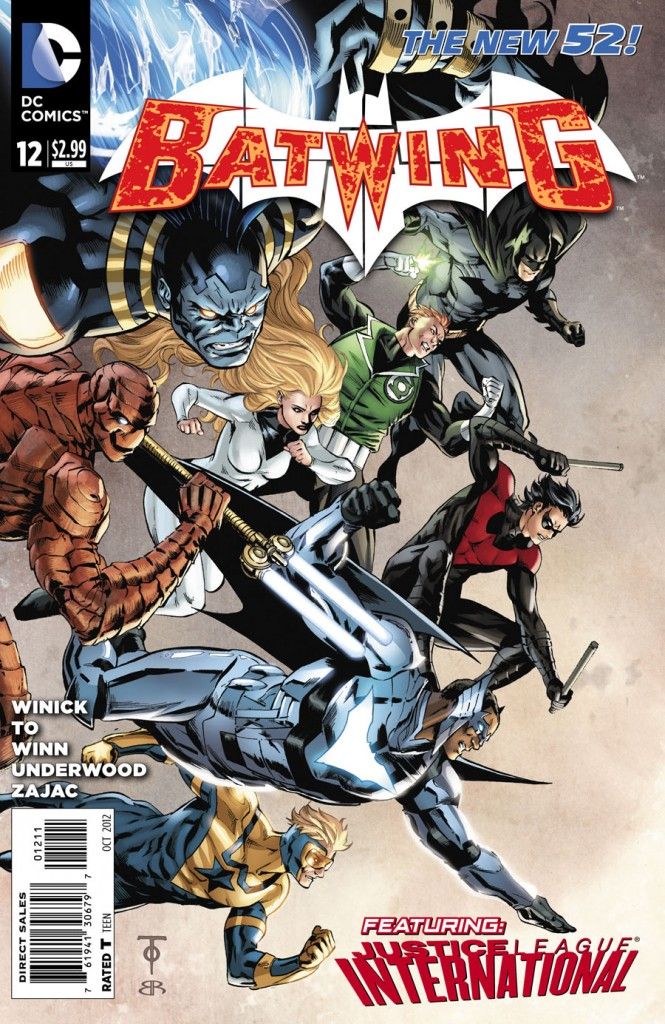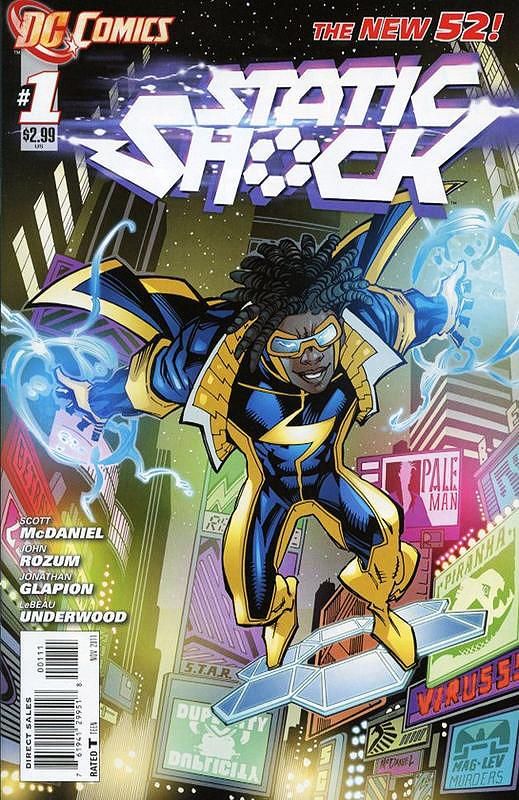THE COLOR BARRIER is a month-long "magazine" spotlighting discussions on diversity in comic books, graphic novels, and popular culture.
The interviews, profiles, and subject matter featured will focus on men and women whose accomplishments serve to create a more informative and culturally diverse landscape of entertainment.
THE COLOR BARRIER: Hollywood's New "Fantastic Four" & Effective Brainwashing
Brandon M. Easton is a professional writer, screenwriter and educator based in Los Angeles, CA. Born and raised in Baltimore, MD, Brandon has penned articles for the Boston Herald, Crashpad Magazine, and a variety of other publications. After teaching in the New York City public school system for six years, he moved to Hollywood and scored a writing gig on Warner Bros.' recent "ThunderCats" series and Hasbro's new show "Transformers: Rescue Bots."
The producer of the comics industry podcast called "Writing for Rookies," Brandon's published work includes "Arkanium" and "Transformers: Armada" for Dreamwave Productions, a column for Blacksci-fi.com, and "Shadowlaw," his graphic novel from Arcana/Platinum Studios that was released in January 2012. Brandon and his works have been featured in USA Today, Wired, Forbes and Ain't It Cool News. He penned an issue of the critically-acclaimed series "Watson and Holmes" for New Paradigm Studios, and his "Shadowlaw" graphic novel earned him the 2013 Glyph Award for Best Writer. In addition to becoming the new writer of the international franchise "Armarauders," Brandon signed a mutli-graphic novel writing deal with Lion Forge Comics, a transmedia company that debuted in April 2013.
Le Beau L. Underwood is a professional comic book inker whose clients include DC Entertainment, Marvel Enterprises, Image Comics, Zenescope, Devil's Due Productions, Dabel Brothers Productions and others. He has worked on various ongoing monthly series, including "The Incredible Hulk," "Noble Causes," "Fantastic Four," "G.I. Joe," "Static Shock," "Haunt," "Batwing," "Arrow," "Katana," "Venom" and "Stormwatch." His main client is DC Entertainment.
Two Black professionals, in different sectors of the comic book industry, join THE COLOR BARRIER and provide frank answers to questions about the ongoing work involved in maintaining a presence in the business.
Joseph Phillip Illidge: Brandon, as a professional writer, on any given day, how much of your time is spent writing for a paid gig, trying to set up the next gig, and developing a new idea to pitch to various publishers?
Brandon Easton: When I'm under deadline, I usually spend four to eight hours a day working on the assignment, and then when it's done, I spend another few hours editing the piece. When it comes to finding new paying gigs, I don't actually have a so-called plan of attack. Usually, I get random e-mails from interested parties inquiring about my availability, or I connect with editors on the convention scene. I make it a rule not to reach out to editors or publishers because the answer is always, "We're not looking for writers at this time." The only time I ever inquired about a possible gig and got hired immediately was on the international comic book franchise "Armarauders" from publisher Mecha Workshop -- and that was a heck of a shock!
However, one of the hidden realities of the industry is that there is always work out there.
Always.
No matter what anyone tells you, there's always a need for a freelance writer -- the problem is that you have to be plugged into certain professional cliques or networks in order to learn about these opportunities. With that said, a writer that constantly inquires about work can develop an industry reputation of a "beggar." I'd much rather use my time developing new concepts instead of banging on a locked door. When they're ready to hire me, they'll let me know.
My concept development cycle can take anywhere from three days to twelve months. All of my recent ideas have been in the back of my head for at least a decade so when I sit down to write, it flows out pretty fast. For graphic novel material, I can develop new stuff overnight, but for TV and film, that takes a while -- about three months to a year.
Le Beau, you've been a professional inker for eighteen years, having worked for DC Entertainment and various other companies. What has been the primary obstacle for you to overcome in your career?
Le Beau L. Underwood: Great question. There are many examples of an answer, but I would have to say my primary obstacle would have been myself.
As an inker, you are constantly comparing and refining your skill level and growth, everyday. This can be both daunting and self-defeating, if allowed. I push myself very hard to improve for the sake of improving. I also will say that inking is a very small and tight-knit community within the industry. I think it is a great privilege to gain insight and direction from many others in the business. But this has to be done within reason, and you have to be careful not to fall into the trap of a "hive mentality." Respect your own work and what you are capable of, and not necessarily adopt the mindset of others as it relates to your own pursuits.
Brandon, without naming names, tell me about an instance in which you know or believe that factors other than your body of work and skill impacted negatively on your efforts to get writing work.
Easton: Wow -- that's a big question!
It's tough to answer that one because I've had different incidents at different points in my career. When I initially broke in with Dreamwave Productions, it felt like folks in the industry didn't want anything to do with anybody that worked with Dreamwave. A few years after that, I had a circle of colleagues and former associates spread awful rumors about my work ethic (saying that I was looking for someone to "give me a job" when all I wanted to know was the best way to connect with editors). I made the mistake of networking with comic book illustrators instead of writers and apparently, when a writer asks an illustrator about networking with editors, they interpret that as, "Please, please, please give me a job!"
Those rumors took a toll because whenever I'd meet an editor who had the slightest connection to those illustrators, they'd get really weird once I said my name. They'd get this look on their face like, "Oh, I've heard about you..." That sucked.
The worst experience I ever had was with a major publisher about ten years ago. I'd made contact with an assistant editor and we'd gotten along well enough for him to invite me to send story pitches. He liked them and asked me to come in to meet his boss for final approval of the pitches so we could go to the scripting phase. I'd spoken to his boss, one of the main editors on that line, over e-mails and on the phone a couple of times and things seemed to be going very well. Then, when I got there, and met the editor in person, their body language revealed a level of shock: they didn't know I was a Black guy.
The meeting lasted about ninety seconds. The editor mumbled something about "getting in touch with me later" and then it was over. The assistant editor was confused. I was confused. It was one of the most bizarre and hurtful incidents of my life. His boss never returned my e-mails or phone calls. After a couple of weeks, I let it go.
Until that point, I hadn't dealt with anything overtly racist in my career. I'd heard stories of Black writers who made great connections with editors through e-mails or via peer recommendation, been promised gigs, but then have all that vanish once they met the editor in person. I never believed that would happen to me. Of course, there's a contingent of people who'd say that it wasn't necessarily a racial situation, but what other explanation could there be? I'd done everything correctly. The pitches were accepted until we met face-to-face and then suddenly the communication was cut off.
As I've spent more and more time in the industry, I've learned that this kind of thing occurs quite frequently. There's really nothing you can do about it because there's plausible deniability based on the subjective nature of writer evaluation. Someone can easily say that the "work wasn't good enough" and then move on. That's why you've got to keep creating independently and hope that enough people connect with your work to create a legitimate fanbase.
Le Beau, to survive, and hopefully prosper, as an inker, is it necessary to ally yourself with a popular penciller, so the two of you become a team like the duos of Jim Lee and Scott Williams or Olivier Coipel and Mark Morales?
Underwood: It is certainly ideal. There is merit in being versatile as an inker, but yes, I would have to say that joining forces with a penciller is probably the best way to go.
Brandon, you've written, directed and produced the documentary "Brave New Souls," about Black writers in the 21st century. Among other goals for the film, is it your intention to inspire certain publishers and production companies to hire the various Black writers featured, thus providing them, and the Black writing community in general, with more creative opportunities?
Easton: Actually, no, I didn't do this for publishers or production companies. I did this to let the Black geek community know that we exist and we need their support to continue creating material. For the last three years, the Black geek online community has been whining and complaining endlessly about the lack of "Black this" or "Black that" at Marvel and DC; they've been up-in-arms about the lack of Black writers employed in the industry and their concerns have evolved from genuine critique to a whirlwind of nonstop bellyaching and it's gotten to the point where no one is listening anymore.
I wanted them to understand that the best way to change the industry is to support Black independent creators on a larger level than they have in previous years. Now our job as creators is to market as hard as possible and let the fans know where to find our work. I fully admit that most of us (Black indie creators) don't have a considerable advertising budget or the support of the comic book journalistic community to the point where we can increase awareness overnight. There's also no Wizard Magazine anymore to hype our work to the "Wednesday crowd."
While many used to regularly trash Wizard Magazine as fluff, you cannot deny how many mainstream comic book writers got a big push from their editorial staff. There's nothing on the marketplace today that comes close to that level of saturation.
"Brave New Souls" can expose many newer Black creators to the mainstream audience as well as the Black comic book fan community. Once the documentary is completed, I'm going to screen it at conventions, academic conferences, libraries, schools, book fairs and expos. It will be available for download so people can watch it on their tablets and smartphones. In fact, "Brave New Souls" will have its world premiere at Eagle Con at Cal State Los Angeles on May 8 and 9.
To address the other part of your question, I would be very pleased if the creators in the documentary managed to get more work as a result of their participation. Again, people have to know we exist so they can make an educated decision regarding our product. If you don't like some of our work, that's fine, but at least give it a chance once you know we exist. If Black geeks continue to ignore us while still complaining about Marvel and DC, then we can't blame the industry anymore.
Le Beau, how many pages does an inker need to complete in a month in order to make a decent living, inking exclusively as a career and source of income?
Underwood: It depends on that inker's definition of "a decent living." One has to factor in day-to-day costs, family and other responsibilities. In general terms, being able to knock out twenty-two pages is ideal, with more pages obviously generating more income. Again, it depends on the inker and his/her level of success in the industry that determines what kind of page rate he or she is capable of earning.
Brandon, Your writing work has been seen on the "ThunderCats" series for Cartoon Network, in various projects for digital publisher Lion Forge Comics, and recently in the detective series, "Watson and Holmes," for New Paradigm Studios, among many other clients. With that body of work, are there still serious difficulties in setting up work with new clients, and how have you managed to overcome those obstacles and stay the course?
The true obstacle is getting past the gatekeepers and their perceptions about your abilities as a writer. Regardless of my pedigree, there is a certain assumption about Black men that is difficult to overcome (as a side note, I'm not discounting anyone else's experiences, I can only discuss my direct person-to-person experience in the industry).
There's a sociological experiment I like where I ask people "What are the first three words that come to your mind when I say the phrase 'Black male?'" I can guarantee that none of those words will be "intellectual."
The art and craft of writing is largely considered to be an intellectual pursuit, requiring a full command of language, structure, rules and grammar. No matter how intelligent you might be, the general societal expectation of a Black guy is extremely low when it comes to intellectual capacity. If I were attempting a career in sports then this wouldn't be a problem, but in comics you have to find a way to get people to pay attention to your work instead of your appearance.
It is impossible to control another person's level of discomfort. There will be men and women out there (of all ethnic backgrounds) who have fears of Black men. If they're not afraid, then they judge you based on some negative situation from the past that has nothing to do with you. I had a very frank conversation with a White male editor at a major comic book company, in a bar during San Diego Comic Con. He revealed that when he was in high school, the only guys that gave him a hard time about being a comic book geek were Black dudes and now, even though he doesn't consciously discriminate, he realizes that he doesn't give as much consideration to Black male creators because of his experiences.
What's the solution? How do you make someone else comfortable when they are filled with negative expectations? I can't answer that, the only thing that I do is maintain my professionalism, give firm handshakes, make eye contact and be myself. I'm 6'2" and a big dude with broad shoulders. I used to play baseball but most assume I was a football player. So there's a physical intimidation factor that comes into play.
All that said, the folks that give me the benefit of the doubt have been pleased with my work and I've enjoyed an excellent relationship with the guys at Lion Forge Comics, Mecha Workshop and New Paradigm Studios.
Le Beau, on Facebook, you recently announced your departure from the comics industry due to a lack of opportunities. How difficult was it for you to do that, and what were the results of your announcement?
Underwood: It was very difficult, and not something I opted to do easily. With the amount of time in the industry that I have, it is very daunting and disappointing to know that your next opportunity may or may not come. There were other factors that went into that decision at the time. But, I will say that the result of my announcement was an overwhelming amount of support from many professionals and fans of my work. They understood my reasons why, but were saddened to discover this. It really touched me to know that so many people respected my work. On the flip side, I also heard from some people in the business who either gave solid, encouraging advice, and others who were downright spiteful, in the sense of kicking dirt in one's face.
Another result was being contacted by two well-known pencillers in the industry who said they always wanted to work with me. One such conversation led to my current work on an upcoming issue of "Green Lantern Corps," inking the pencils of Chris Batista. I'll also be doing an upcoming run on a title that will soon be announced.
Brandon, what are the next projects you have on deck, and what is the one kind of story you're determined to write and sell in the future?
Easton: I'm still writing for Lion Forge Comics, just finishing up my story lines on "RoBoy" and "The Joshua Run." I'm writing an original cosmic adventure concept for them, and I recently completed a graphic novel biography of pro wrestling legend Andre the Giant that will be released sometime near the end of 2014. That script took me a year to complete and it was the largest non-fiction project I've ever attempted.
I was hired by the Asia-based company Mecha Workshop to write their franchise title "Armarauders" which is an amazing sci-fi war story featuring giant mechs that were designed by acclaimed Transformers artist Don Figueroa. I did script assists on issues #4 and #5 but I will be fully scripting everything from issue #6 onward.
There's another really cool project that I can't disclose, but I was hired to adapt a popular writer's screenplay from a feature-film to a graphic novel and that is an amazing learning opportunity. Not only do I get to study script structure from a guy who's done big movies that have grossed hundreds of millions of dollars, but I also grow as a visual storyteller by condensing plot and thematic elements to make sense within the comic book panel.
I continue to record episodes of my writing advice podcast Writing for Rookies and the Two Brandons Podcast along with fellow writer Brandon Thomas.
In the future, I'd love to create a meaningful sociological sci-fi story along the lines of "Gattaca" or "Children of Men," where a definitive statement is made about the future of humanity that is uncompromising and true to life. I've got a few of those concepts in development, and I want to make the audience think about the world beyond being entertained.
Le Beau, even with your large body of work, are there still some pencillers with whom you'd like to work in the future. Who would be the top three?
Underwood: This is both an easy and very difficult question to answer, as there are many talented and skilled pencillers I would like to work with.
My top three would be Khary Randolph, Cary Nord, and Paulo Siqueira.

